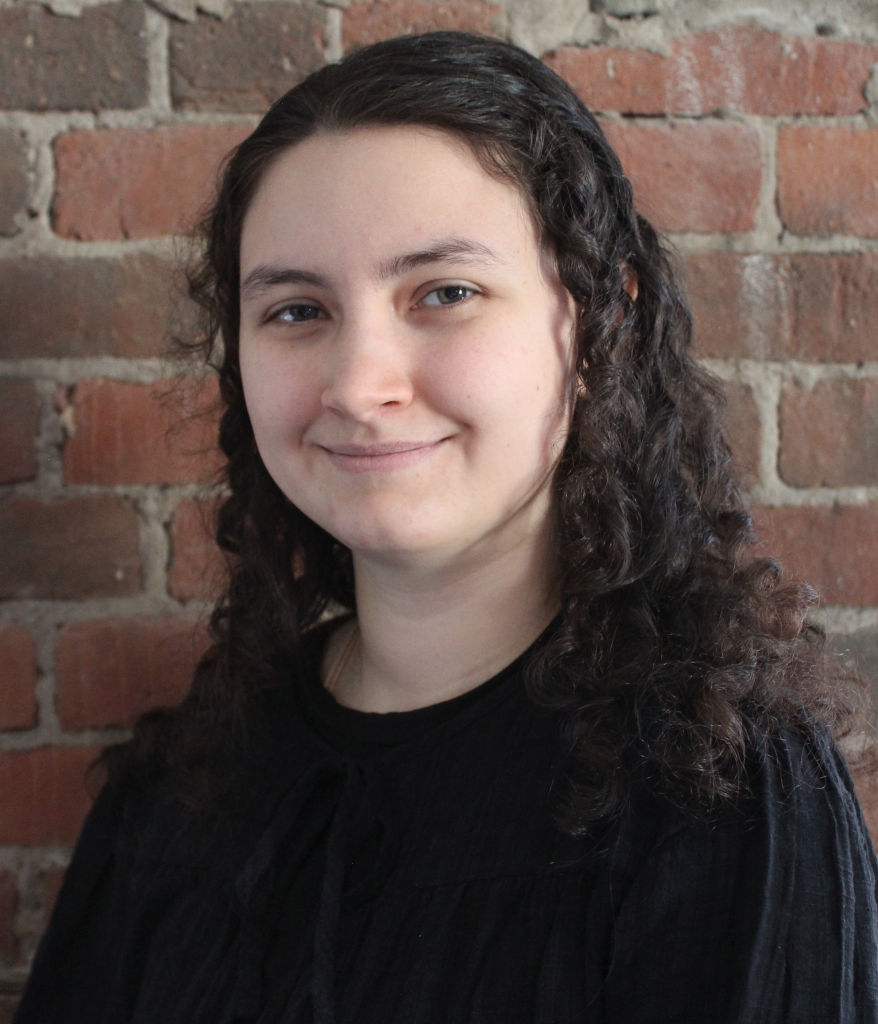Piper O’Neil Doak, who will graduate this week with a Bachelor of Arts in Art History and a Minor in Print, Paper, and Book Arts, has been chosen by the 2023 graduating class as their valedictorian.
Doak is a multi-disciplinary artist, musician, poet, and art historian who was born and raised in Halifax, Nova Scotia (Kjipuktuk, Mi’kma’ki). Doak’s practice is rooted in their interest in their own family history, as well as mythologies, land relationships, and the place of printmaking and book arts within the canon of Canadian art history.
Over the course of their degree, Doak organized a variety of events and collaborations, including exhibitions, installations, performances, workshops, and print exchanges. Doak says their greatest joy has been the connections that they made with their fellow students, staff, and faculty at NSCAD, who have both driven and inspired them during their time here. Doak also took courses at Dalhousie University as a visiting student in the Classics Department, and recently published a paper in the undergraduate journal Pseudo-Dionysius.
Currently, Doak is training as a letterpress printer and technician, and plans to continue this path after graduation. They worked at the Dawson Print Shop & Bindery as an assistant during their time at NSCAD and were also the typesetter for the pocket edition of Nicholas Shick’s letterpress printed art book series Radiate. Doak works under the name Odyssean Press, making artist books and honing their printmaking skills while doing commissions for clients. Doak’s first solo exhibition, ‘the weight of these waves,’ took place in October of 2022 at the Anna Leonowens Gallery.

What was one lesson learned at NSCAD?
I think that a lesson that I learned at NSCAD would be that I can still have fun with my art while also tackling topics that are important to me. And that not everything has to be taken super seriously. It’s something that I learned especially while working at the Dawson Print Shop as a letterpress assistant. You know, when you’re making these large editions, you can play around with it. And even if the actual words that you’re using could be something really heavy or important, the way that you go about it can still add an element of play.
Do you have any advice for future graduates?
Take as many classes as you can in different areas of focus. I feel like if you set your sights on one thing and only do that one thing, you’re limiting your own growth. I would never have gotten where I am if I had done exactly what my plan had been when I first started at NSCAD. I was supposed to be a painting student; that didn’t happen. I took one class of printmaking and completely switched up my entire plan for my minor. It’s something that I never would have done if I didn’t try a bunch of stuff first. Interdisciplinarity is something that NSCAD does well with intro courses you can take and those electives. There’s a wide range of topics that you can explore.
Your crossover into classical studies is interesting. Can you speak to that?
I’ve always had a strong interest in the classics. When I found out that NSCAD had a partnership with Dalhousie to take those classes as a visiting student, I jumped at the opportunity.
At the time, I had a strong focus on ancient art history around the Mediterranean. In order to properly appreciate and study a subject, you need to know the wider cultural context around it. Learning about religious beliefs, social beliefs at the time that these works of art were created, allows me to bring a better understanding into my own research.
What’s your next big goal?
Well, the most immediate thing is to get some rest! But I’m also in the middle of planning a print exchange. I was president of the NSCAD Print Club for a few semesters and we did a lot of exchanges, both internal and external. Those types of facilitations are something that I would really like to continue to work on.
What are key components of a good education?
One would be a willingness to listen to others. Because you never know, someone’s going to have different experiences than you, so having their input is a really good way to expand your own practice.
Don’t be afraid to get your hands dirty. I think that’s the thing, especially when you’re working in the art community, both figuratively and literally. You have to step out and try things that you wouldn’t normally do. And a third thing, I think, would be make good connections. Those are the friendships and relationships that are going to continue after you graduate. You want to really have those strong connections when you’re moving forward into the art world.
